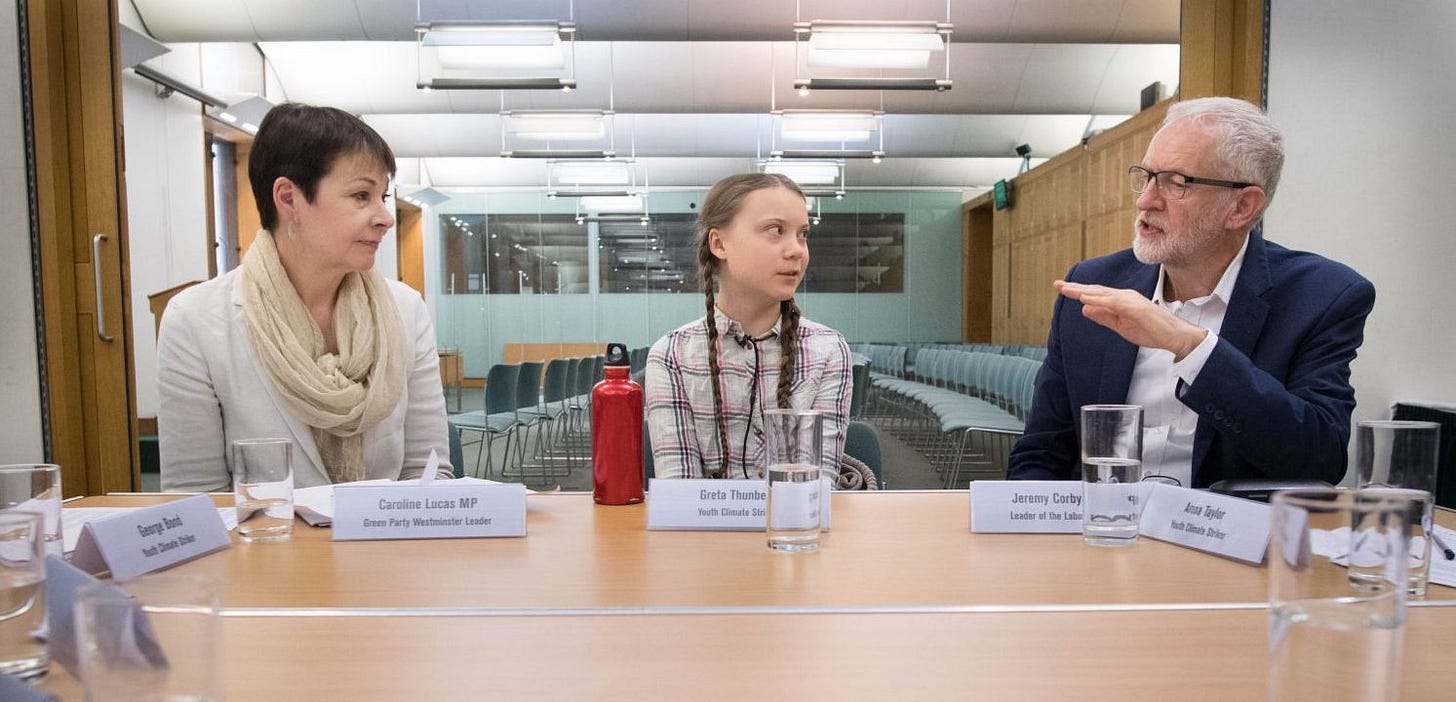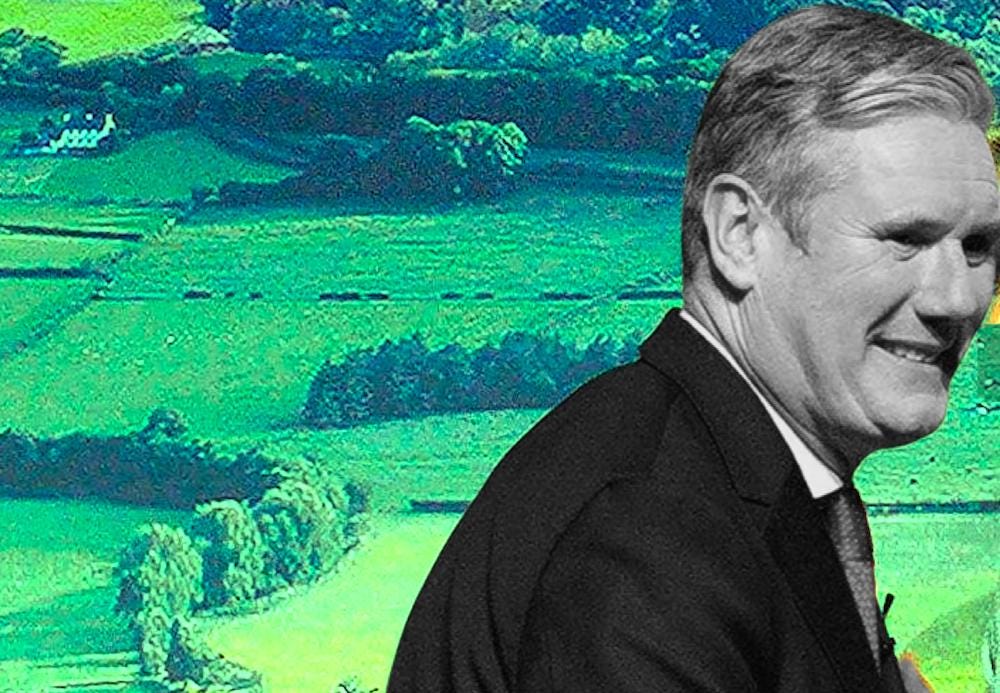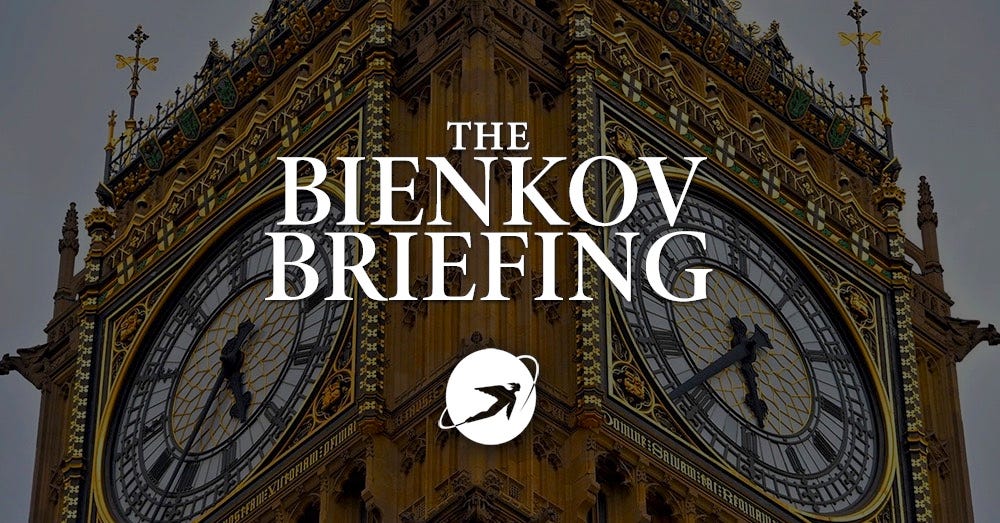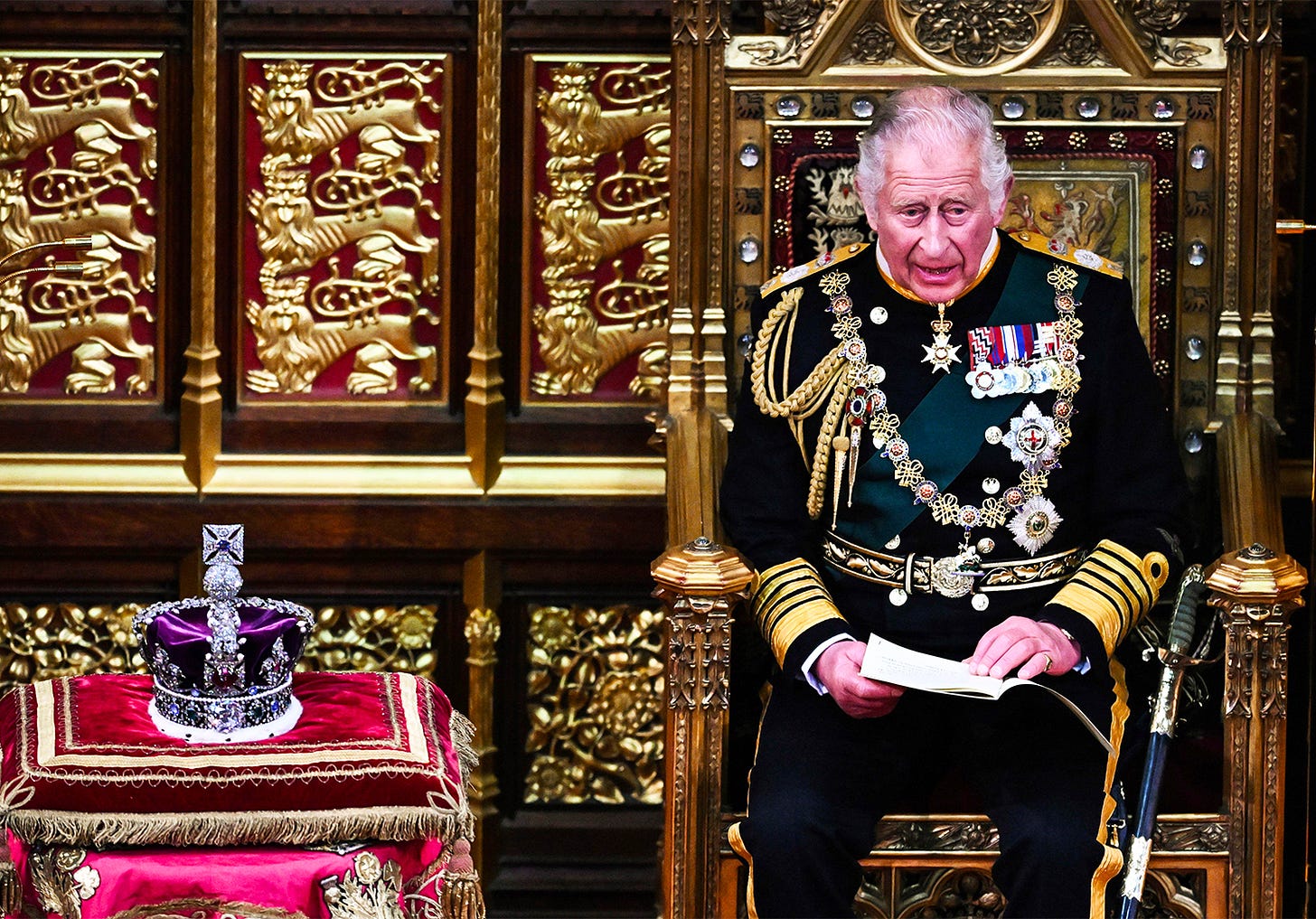Green About the Gills: Why the Local Election Results Are Not All Good News For Keir Starmer
The rise of the Green Party is a significant cause for concern for an otherwise resurgent Labour Party, reports Adam Bienkov
In this week’s Bienkov Briefing:
LABOUR MAKE BIG GAINS IN THE LOCAL ELECTIONS
BUT A SURGE FOR THE GREEN PARTY POSES A THREAT TO LABOUR
POLL FINDS VOTER CONCERN WITH STARMER’S BROKEN PROMISES
JUST 25% PLAN TO PLEDGE ALLEGIANCE TO KING
“Make no mistake,” Keir Starmer said on Friday morning as a clear picture from the local election results began to develop.
“This means that we are on course for a Labour majority of the next election.”
On the face of it Starmer’s claim looks difficult to argue against.
The Conservative Party are on course to suffer their worst set of local election results since they were last ejected from office in the 1990s, while Labour have made strong gains in some areas they haven’t won for decades.
Yet look beyond the headline numbers and there are signs that everything may not be quite as rosy for the opposition as Starmer suggests.
While there is unlikely to be many worried faces around the Labour leader as he celebrates this evening, these elections are not quite the slam dunk for Labour that they might at first appear.
According to one projection by Professor Michael Thrasher, while these results are likely enough to make Labour the largest party at the next general election, they may not be enough to hand Labour the overall majority that Starmer insists they are heading for.
A separate national projection by the BBC also puts the Labour just nine points ahead. Speaking to Byline Times earlier this week, Sir John Curtice, suggested the party needed to be gaining at least a double digit lead at this point.
There are multiple reasons for this potential shortfall. However, it is worth noting that although Labour has restored much of its vote in the Brexit-supporting areas that turned away from them in 2019, the party also appears to be doing significantly less well in some of the liberal university-educated areas that until now have made up much of its core vote.
In large part this is down to the advance of the Green Party, which has picked up votes and seats in exactly the sorts of areas that Labour had until recently been storming ahead in.
There are obviously multiple reasons for that advance. The increased salience of green issues, in the midst of a climate crisis, is undoubtedly a factor. However, the worry for Labour is that it may go beyond these broader issues, and instead be a sign of growing dissatisfaction with Labour among parts of its core vote.
In particular, Keir Starmer’s recent ditching of previous campaign election pledges, plus rows over the suspension of Jeremy Corbyn and Diane Abbott, have added up to a sense among some on the left of the party that it is drifting relentlessly to the right.
While this sense is widespread among some inside the party, it is unclear to what extent the wider voting public has picked up on it, if at all.
So could the Green resurgence be part of a potentially fatal splintering of Labour’s vote or is it a small price to pay for getting back into Government?
The Grass is Always Greener

To help test that theory, the Byline Supplement asked pollsters Omnisis this week to conduct some polling on public opinion about Keir Starmer, his character and his politics.
Firstly we asked whether voters believed that Starmer’s recent decision to ditch his pledge to scrap tuition fees was the right or wrong decision.
Overall 40% said it was the wrong decision, compared to just 30% who said it was the right decision.
Interestingly the number saying this was the wrong decision rose to 45% among Labour voters, and a whopping 61% among Green Party voters.
Younger voters were the most likely to say it was the wrong decision, with 51% of 18-24 year olds disagreeing with the decision and just 17% agreeing with it.
This lends some credence to the idea that the Green Party could be a likely home for disaffected Labour voters.
The recent row over tuition fees has also reignited questions about Starmer’s trustworthiness.
Asked whether they trusted the Labour leader to keep his promises, just 29% said they did, compared to 46% who said they didn’t.
However, interestingly distrust in Starmer appears to be mostly found among Conservative voters - 75% of whom don’t trust him - rather than other parties on the left, or younger voters - among whom opinion was broadly similar to the population as a whole.
This suggests that with the exception of Conservative voters, Starmer’s trustworthiness is not yet quite the major problem for him that it might yet become.
Of course these sorts of questions are relative and Starmer’s figures are still better than Rishi Sunak’s. Asked whether they trust the Prime Minister to keep his promises, just 25% said they did, compared to 55% who said they didn’t.
Concerns among Labour members about Starmer drifting to the right also do not appear to have filtered through to the public as a whole.
Overall just 9% of voters said that Starmer was too right wing, with just 8% of Labour supporters saying the same. This compares to 17% of all voters saying he is, by contrast, too left wing.
Interestingly voters were more likely to say that Rishi Sunak is too right wing, with 21% of all voters saying that, compared to just 11% who say he is too left wing.
However, Conservative voters appear more comfortable overall with the Prime Minister’s politics than Labour voters are with Starmer. Overall, 75% of Conservative voters said Sunak’s politics were “about right” compared to just 57% of Labour voters who said the same about Starmer.
The Green surge, combined with these findings on Starmer’s trustworthiness, should give some cause for concern for Labour after what is undoubtedly a very encouraging set of election results for the party.
So while Labour remains on track to get back into Government at the next general election, there remains a risk of at least a partial splintering of its vote, unless it does more for those voters most likely to defect to the Greens and other parties on the left.
Just 25% Plan to Pledge Allegiance to Charles.
This weekend’s coronation ceremony of Prince Charles is due to contain a curious demand for members of the public to publicly pledge their allegiance to the monarch.
The move, which will be a first for the UK, is not fully backed by the public, according to our poll.
According to polling by Omnisis, just 25% of all voters said they planned to pledge allegiance, compared to 56% who said they didn’t, and 19% who said they didn’t know.
Liberal Democrat voters were the most likely to say they will pledge allegiance to the King, with 37% saying they will, followed by Conservative voters on 36%. Labour voters will be significantly less likely to do so, with just 25% saying they plan to.





Spot on. I'm one of those becoming increasingly disaffected by Starmer and his policies which are so removed from his earlier "promises" before becoming leader.
Someone should write an piece on why a Labour minority government would be the most likely to make the necessary democratic reforms. The Scottish Parliament uses a d'hondt electoral system designed to avoid an outright majority by one party. It has the benefits of blending constituency based msps and PR list msps. If you want to hold politicians and their respective parties to account FPP must end.